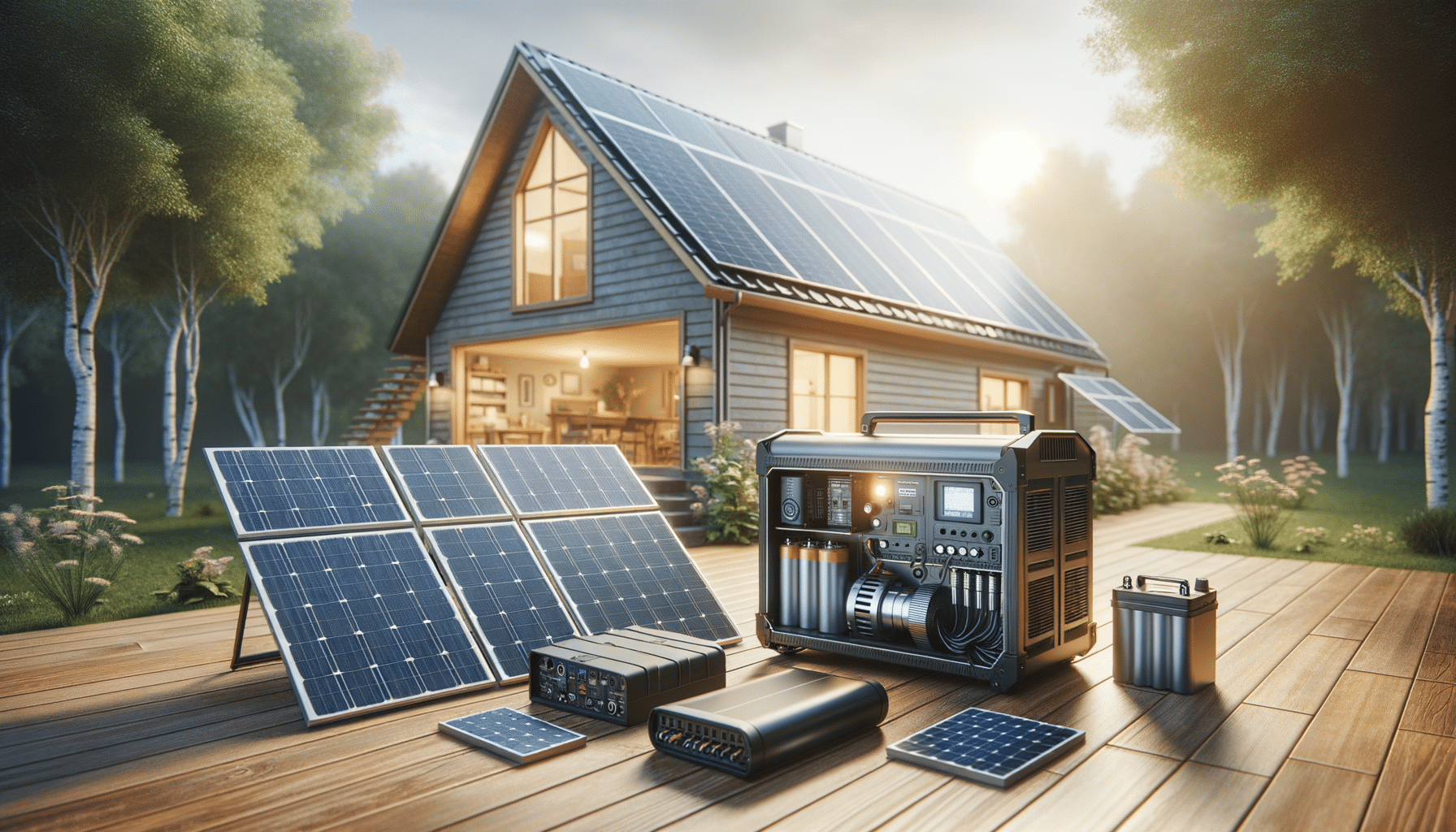
What to Know Before Choosing a Portable Solar Generator for Home Use
Understanding How Solar and Generator Systems Work
Solar and generator systems offer a sustainable and reliable way to power homes and devices. These systems typically consist of solar panels, a battery or energy storage unit, and an inverter. Solar panels capture sunlight and convert it into direct current (DC) electricity. This electricity is then stored in a battery or energy storage unit for later use. The inverter plays a crucial role by converting the stored DC electricity into alternating current (AC) electricity, which is the standard form of power for home appliances and devices.
One of the key advantages of solar generator systems is their ability to provide clean energy, reducing reliance on fossil fuels. This makes them an environmentally friendly option for those looking to reduce their carbon footprint. Additionally, solar generators can be a cost-effective solution in the long run, as they harness free energy from the sun. However, the initial investment can be significant, and the efficiency of these systems largely depends on weather conditions and sunlight availability.
For those interested in off-grid living or needing emergency backup power, understanding how these systems work is essential. They offer a versatile solution that can be tailored to fit different energy needs, from small portable units for camping to larger setups capable of powering entire homes. It’s important to assess your energy requirements and environmental conditions to choose the right system for your needs.
Choosing the Right Power Solar Generator
When selecting a power solar generator, several factors should be considered to ensure it meets your energy needs. Capacity is one of the most critical aspects, as it determines how much power the generator can store and deliver. It’s measured in watt-hours (Wh) or kilowatt-hours (kWh), and you’ll need to calculate your energy consumption to choose an appropriate capacity. Consider the appliances and devices you plan to power and their energy requirements.
Portability is another important factor, especially if you plan to use the generator for outdoor activities or travel. Portable solar generators are designed to be lightweight and easy to transport, but this often comes at the expense of capacity. If you need a generator for home backup, a larger, stationary model might be more suitable.
Compatibility with solar panels is crucial, as not all generators can connect to all types of panels. Check the input and output specifications to ensure they align with your solar setup. Additionally, consider features such as multiple outlets, USB ports, and the ability to charge from a wall outlet or car charger for added versatility.
Finally, evaluate the brand’s reputation and customer reviews to ensure reliability and support. A well-regarded manufacturer will offer warranties and customer service that can provide peace of mind and assistance if needed.
Solar Generators for Home Backup
Solar generators are increasingly popular for home backup due to their ability to provide clean, renewable energy during power outages. Unlike traditional gas generators, solar generators operate silently and without emissions, making them a more environmentally friendly option for residential use. They are particularly beneficial in areas prone to natural disasters, where power outages can be frequent and prolonged.
When using a solar generator for home backup, it’s essential to consider the power needs of your household. Determine which appliances and systems are critical during an outage, such as refrigerators, lights, and medical equipment. This will help you select a generator with adequate capacity and output.
Installation of a solar generator for home backup is relatively straightforward, especially if you already have solar panels installed. The generator can be connected to your home’s electrical system to provide power seamlessly during an outage. For those without existing solar infrastructure, portable solar panels can be used, although they may not provide the same level of power as permanent installations.
Investing in a solar generator for home backup not only provides peace of mind but also contributes to a more sustainable energy future. As technology continues to advance, these systems are becoming more efficient and accessible, making them a viable option for homeowners looking to enhance their energy resilience.


